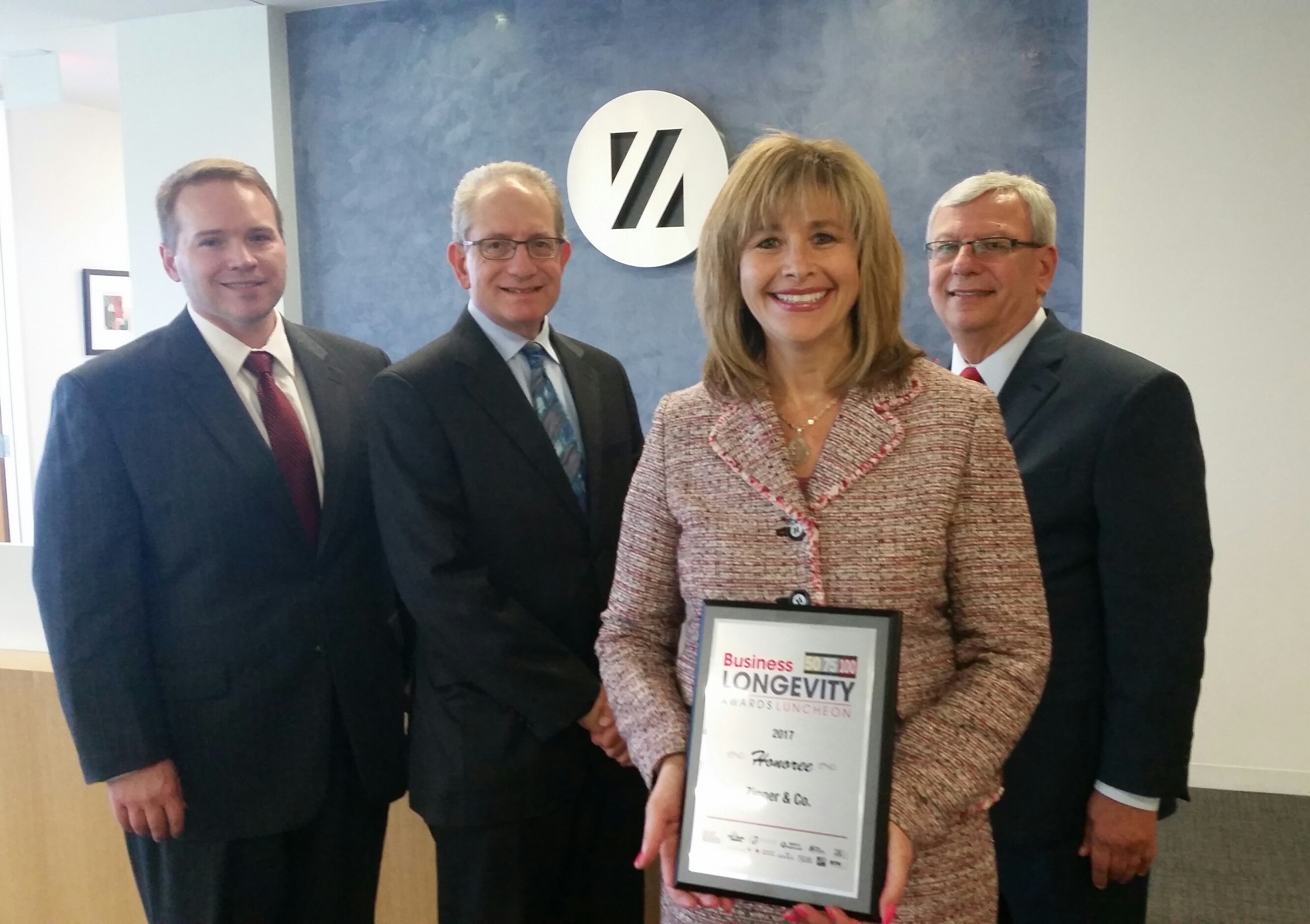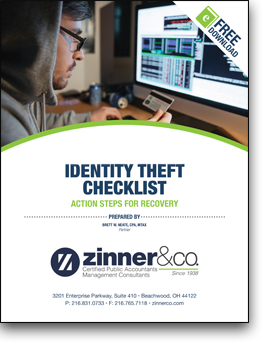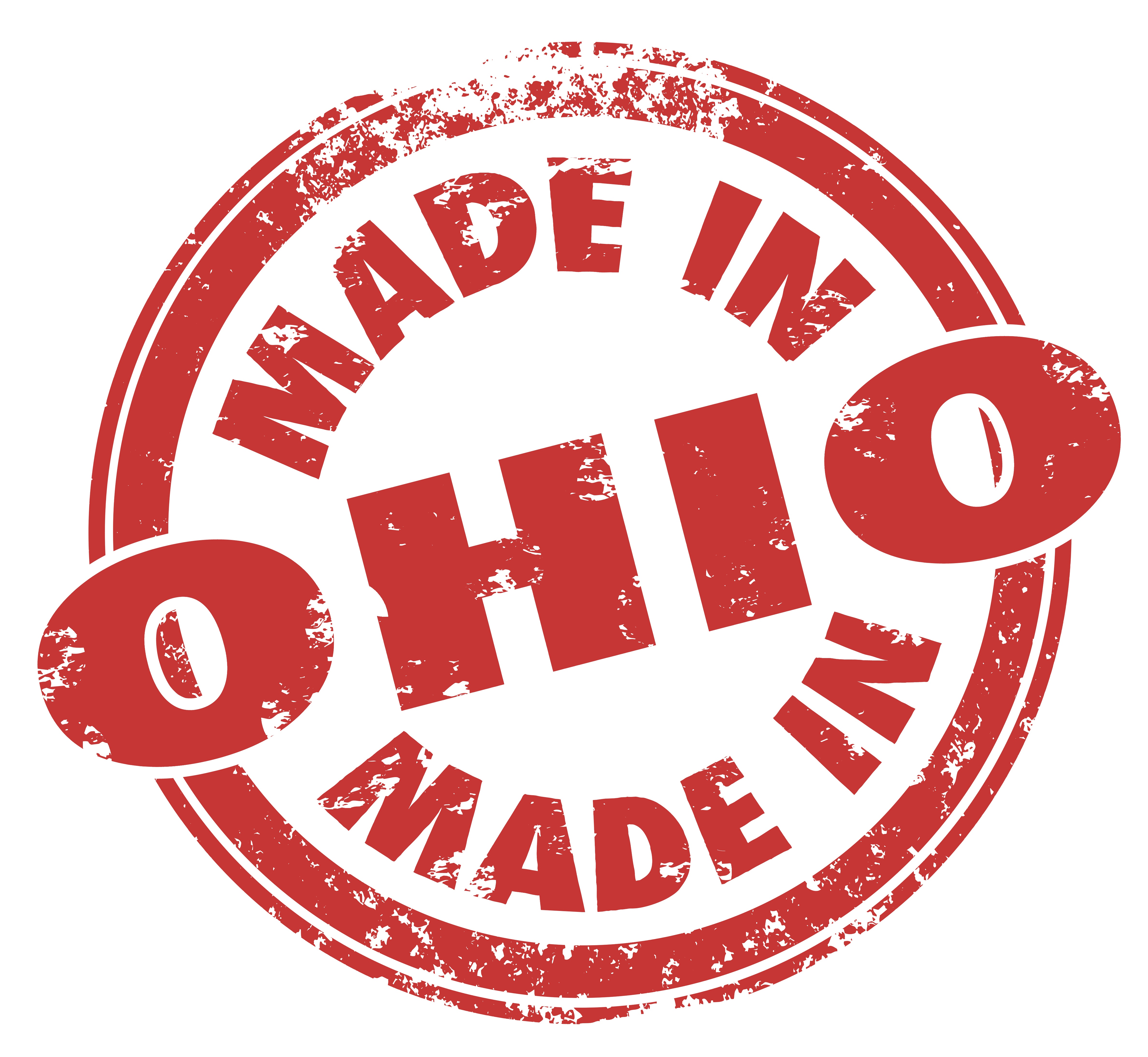Congress is enacting the most sweeping tax legislation in thirty years, one that will make fundamental changes in the way you, your family and your business calculate your federal income tax bill, and the amount of federal tax you will pay. Since most of the changes will go into effect next year, there is still a narrow window of time before year-end to soften or avoid the impact of crackdowns and to best position yourself for the tax breaks that may be heading your way.
Here is a quick rundown of last-minute moves you should think about making.
Tax Cuts and Jobs Act of 2017: What it means to you and your business
Zinner & Co. Tax Department tax services , Brett W. Neate , Taxes - Corporate & Business , Taxes - Planning, Rules and Returns , Taxes - IndividualOhio Manufacturer? Sales tax savings that help your business grow
Brett W. Neate, CPA, MTax Ohio business owners , Brett W. Neate , manufacturingLike everything in life, the manufacturing process has a beginning and an end. Understanding that process is important for making business decisions regarding raw materials, staffing, inventory, fixed assets, and innovation.
This knowledge is also used by well-advised businesses to reduce tax expense in Ohio and many other states that have designed their sales tax structure to promote manufacturing.
Read more from Brett Neate here
Ohio does not require sales or use tax to be paid on the purchase or consumption of items used primarily in the manufacturing operation to produce personal property for sale. One of the challenges in maximizing the benefit of this exemption is understanding, for sales tax purposes, when the production process begins and ends.
Production begins when raw materials are committed to the process and ends when the product is in its final state or form. While these definitions seem straightforward, they tend to incredibly nuanced depending on the product being created and the specific process being utilized by the manufacturer.
An additional challenge in properly applying the exemption is when assets or materials are used in both manufacturing and non-manufacturing processes. For example, forklifts are often used to move raw materials, production items, and finished goods. The cost to purchase, maintain, and power the forklifts may or may not be subject to sales tax depending on whether or not they are used primarily in the production process.
Trick? How to Know if the Knock on Your Door is Actually Someone from the IRS
Zinner & Co. Tax Department Brett W. Neate , IRS| Every Halloween, children knock on doors pretending they are everything from superheroes to movie stars. Scammers, on the other hand, don’t leave their impersonations to one day. They can happen any time of the year. People can avoid taking the bait and falling victim to a scam by knowing how and when the IRS does contact a taxpayer in person. |
Hurricane Tax Provisions Included in Bill Passage
Zinner & Co. Tax Department Brett W. Neate , Taxes - Planning, Rules and ReturnsDisaster Tax Relief and Airport and Airway Extension Act of 2017 expands the application of disaster-related tax relief to the hard-hit US Virgin Islands and Puerto Rico.
Brett Neate Featured Speaker at Wire-Net Event
Brett W. Neate, CPA, MTax Brett W. Neate , Taxes - Corporate & Business , Business - Management, Issues & ConcernsLearn “5 Things Every Business Owner Should Do Before December 31” during WIRE-Net’sOctober workshop, Thursday, October 12 at Cuyahoga Community College’s Advanced Technology Training Center. The event is open to members and non-members.
Partner Brett Neate will educate business owners and decision makers as they face the Q4 flurry of activity that is critical to accurately closing 2017 and properly preparing for 2018.
Firm Recognized with Business Longevity Award
Zinner & Co. Firm news , Brett W. Neate , Sue Krantz , Robin BaumThe firm, along with 43 other regional companies, were lauded for 50+, 75+, or 100+ years in business. “We’re thrilled to again be recognized by Smart Business Magazine for our 79 years in business and more so, that we are able to serve clients, many who are multi-generational, with solid, sustainable, and practical accounting, tax, and consulting services,” said Brett Neate, CPA, Partner.
(L to R: Partners Brett Neate, Howard Kass, Sue Krantz, Gabe Adler. Not pictured, Robin Baum)
IRS Alerts Taxpayers with Limited English Proficiency of Ongoing Phone Scams; Urges Caution Before Paying Unexpected Tax Bills
Brett W. Neate, CPA, MTax Brett W. Neate , Credit card fraud , IRSCon artists often approach victims in their native language, threaten them with deportation, police arrest and license revocation, among other things.
“These scammers continue to adapt and evolve, and the IRS continues to receive reports of these schemes using multiple languages trying to find victims across the country,” IRS Commissioner John Koskinen said.
Why Your 401(K) Plan May Not Be the “End-All Be-All” For Your Retirement
Zinner & Co. Tax Department Brett W. Neate , Taxes - Planning, Rules and Returns , Retirement Planning & IRAsSince their inception via the Revenue Act of 1978, 401(k) plans have been great tools to help workers save for retirement. While a 401(k) plan has many advantages, there are also some drawbacks to them that one should consider when creating a comprehensive retirement-strategy.
The advantages of a 401(k)
The basic concept of a 401(k) plan is to allow workers to make pre-tax contributions to the plan from their paychecks. As a result, money contributed is not included in their taxable income for that year.
Show Me the Money - How InvestOhio may reduce your taxes
Brett W. Neate, CPA, MTax Ohio business owners , Brett W. Neate , Taxes - Corporate & BusinessWhile there are a myriad of ways to reduce Ohio income taxes that are well known and widely leveraged, some methods seem to go largely unnoticed. One of those lesser-known and underutilized methods that every small business owner, or those interested in owning a small business, should be aware of is the InvestOhio program.
InvestOhio, launched by the State of Ohio several years ago, was created to encourage investment in Ohio-based eligible small businesses. Qualifying applicants to this program will receive non-refundable Ohio personal income tax credits equal to 10% of their investment in an eligible small business. Any unused credits can be carried forward up to seven years.
4 Ways to Spot IRS Debt Collection Scammers
Zinner & Co. Tax Department fraud , Brett W. Neate , IRSExtracted in part from https://www.irs.gov/uac/newsroom/irs-alerts-taxpayers-with-limited-english-proficiency-of-ongoing-phone-scams-urges-caution-before-paying-unexpected-tax-bills
How private debt collection works
The IRS reminds people to be on the lookout for scam artists trying to dupe taxpayers as the private debt collection program begins.
Starting this month, a new program will transfer some long-standing tax bills over to private firms. The only outside agencies authorized to contact taxpayers about their unpaid tax accounts will be one of four firms authorized under the new private debt collection program. Even then, any affected taxpayer will be notified first by the IRS, not the private collection firm.
About Us

Since 1938, Zinner has counseled individuals and businesses from start-up to succession. At Zinner, we strive to ensure we understand your business and recognize threats that could impact your financial situation.
Recent Blog Posts
Categories
- 1031 Exchange (2)
- 401k (2)
- 529 plan (4)
- ABLE Act (1)
- account systems (3)
- accounting (8)
- Affordable Care Act (8)
- alimony (2)
- American Rescue Plan Act (1)
- Ask the Expert (5)
- Audit and Assurance Department (13)
- audits (8)
- Bank Secrecy Act (1)
- banks (1)
- Barbara Theofilos (6)
- Beneficial Ownership Information (1)
- Bitcoin (1)
- block chain (2)
- BOI (3)
- Bookkeeping (1)
- Brett W. Neate (28)
- budgets (1)
- Bureau of Worker's Compensation (12)
- Business - Management, Issues & Concerns (50)
- business income deduction (3)
- business succession (7)
- business travel expense (3)
- business valuation (5)
- capital gains (2)
- careers (7)
- cash flow (2)
- Child Tax Credit (2)
- Chris Valponi (8)
- City of Cleveland (1)
- Cleveland COVID-19 Rapid Response Fund (1)
- Cleveland Rape Crisis Center (2)
- college (3)
- Community (24)
- Compliance (1)
- Coronavirus (24)
- Corporate Transparency Act (1)
- COVID-19 (30)
- Credit card fraud (5)
- credit reporting (2)
- cryptocurrency (2)
- CTA (2)
- cybersecurity (16)
- dead (1)
- DeAnna Alger (6)
- death (2)
- debt (4)
- deductions (14)
- Deferring Tax Payments (4)
- Department of Job and Family Services (2)
- depreciation (1)
- Digital Tax Payment (1)
- divorce (4)
- DOMA (3)
- Economic Impact Payments (2)
- Economic Injury Disaster Loan (4)
- education (8)
- EIDL (1)
- electronic filing (4)
- Electronic Tax Payments (2)
- Emergency Working Capital Program (1)
- employee benefit plan auditor (1)
- Employee Leave (2)
- Employee or Independent Contractor (6)
- Employee Retention Credit (3)
- employment (2)
- ERC (3)
- Eric James (8)
- Estates, Gifts & Trusts (48)
- expenses (5)
- Families First Coronavirus Response Act (2)
- FASB (1)
- FBAR (1)
- FDIC coverage (1)
- Federal Assistance (4)
- filing (3)
- financial planning (8)
- Financial Planning - College (9)
- financing (3)
- Firm news (119)
- first responders (1)
- FMLA (1)
- foreign assets (3)
- fraud (38)
- FSA (1)
- fundraising (9)
- Gabe Adler (1)
- gift tax (5)
- HDHP (2)
- health care (3)
- home (2)
- home office (1)
- Howard Kass (2)
- HRA (1)
- HSA (5)
- identity theft (32)
- income (1)
- income tax (57)
- independent contractor (1)
- Inflation (1)
- Insurance (7)
- internal control (4)
- international (2)
- Intuit (1)
- investments (4)
- IRS (88)
- jobs (5)
- John Husted (1)
- K-1 (1)
- Laura Haines (3)
- Layoff (2)
- Layoffs (1)
- leadership (3)
- lease accounting standards (1)
- life insurance (1)
- LLC (3)
- Loans (2)
- longevity income annuities (1)
- Lorenzo's Dog Training (1)
- Magic of Lights (1)
- management advisory (3)
- manufacturing (2)
- Matt Szydlowski (3)
- medical (7)
- Medicare (2)
- mergers and acquisitions (1)
- Mike DeWine (2)
- Millennial Concepts (2)
- minimum wage (1)
- NAIOP (1)
- National Defense Act (1)
- non-profit reporting (10)
- non-profits (38)
- not-for-profit (26)
- ODJFS (1)
- office (1)
- ohio (13)
- Ohio business owners (18)
- Ohio Department of Jobs and Family Services (3)
- Ohio Department of Taxation (3)
- Ohio Incumbent Workforce Training Voucher Program (1)
- Online Tax Payment (3)
- Operations (2)
- OPERS (1)
- owners of foreign entities (1)
- partnerships (5)
- passwords (1)
- Paycheck Protection Program (9)
- payroll (8)
- penalties (3)
- pension (2)
- personal finance (2)
- planning (4)
- ppp (7)
- Productivity (5)
- Qualified Business Income (1)
- quickbooks (10)
- real estate (14)
- record retention (2)
- records (2)
- Reporting (1)
- Republican National Convention (1)
- Retirement Planning & IRAs (53)
- Richard Huszai, CPA (5)
- RITA (1)
- Robin Baum (6)
- RRF (1)
- S Corporation (1)
- SALT (8)
- SBA (8)
- scams (12)
- SECURE 2.0 Act (1)
- security (6)
- SharedWorks (1)
- Shutdown (3)
- Silver Linings (9)
- simplified employee pension (1)
- Small Business (5)
- SMB (12)
- Social Media (1)
- social security (4)
- Speaker Series (2)
- spouse (1)
- start ups (8)
- Stay at Home Order (3)
- Steven Mnuchin (1)
- Sue Krantz (6)
- SVOG (1)
- tangible property (1)
- tax (27)
- tax avoidance (12)
- Tax Credit (7)
- Tax Cuts and Jobs Act of 2017 (31)
- Tax Exempt (1)
- Tax Holiday (1)
- Tax Interns (2)
- tax services (28)
- taxes (45)
- Taxes - Corporate & Business (104)
- Taxes - Individual (117)
- Taxes - Planning, Rules and Returns (188)
- TechCred (1)
- technology (7)
- The CARES Act (6)
- The SOURCE (1)
- tiag (3)
- transaction advisory (2)
- Treasury Department (5)
- tuition (3)
- U.S. Department of the Treasury (1)
- U.S. Small Business Administration (6)
- Unclaimed Funds (1)
- Unemployment Benefits (4)
- withdrawls (2)
- withholding (6)
- Workers Comp Billing Changes (1)
- Zinner & Co. (32)
- Zinner News (30)











